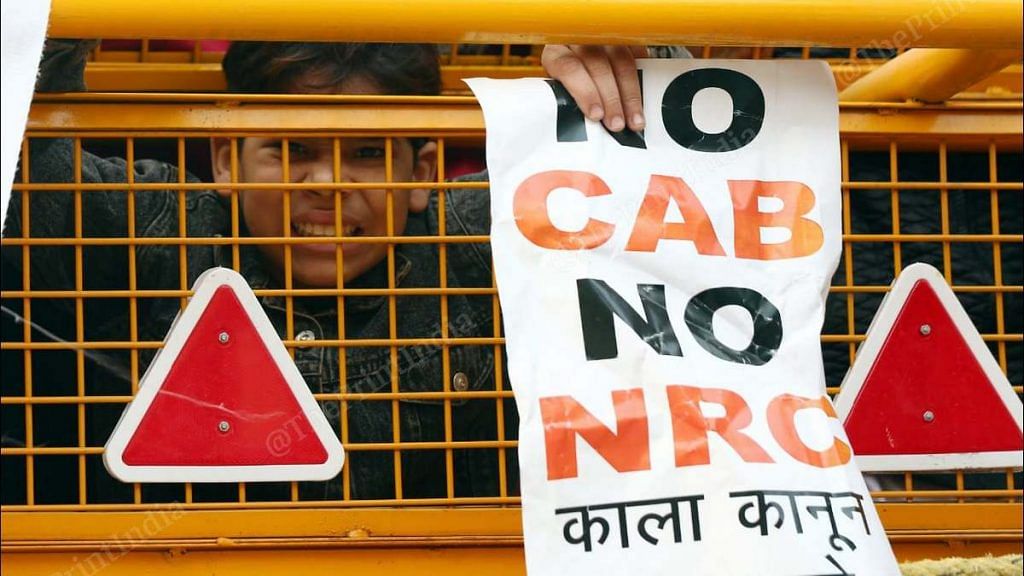New Delhi: The Kerala government Tuesday moved the Supreme Court challenging the contentious Citizenship Amendment Act (CAA) 2019, joining the batch of 60 other petitions questioning the constitutionality of the law.
The CPM-led Kerala government — the first state government to challenge the Act — sought to declare the law as violative of the principles of equality, freedom and secularism enshrined in the Constitution.
However, there is a major difference between the petitions already filed before the Supreme Court and the one filed by Kerala — the latter has been filed under Article 131 of the Constitution of India.
The new law, which seeks to give citizenship to six non-Muslim minority communities from Pakistan, Bangladesh and Afghanistan, has seen vociferous opposition across the country ever since it passed by Parliament in December last year.
Kerala, as a state, is constitutionally bound, under Article 256, to implement any law passed by Parliament.
ThePrint explains what Article 131 is and what the Supreme Court’s powers under it are.
What the law says
Article 131 of the Indian Constitution states: “Original jurisdiction of the Supreme Court: Subject to the provisions of this Constitution, the Supreme Court shall, to the exclusion of any other court, have original jurisdiction in any dispute:
(a) between the Government of India and one or more States;…
…if and insofar as the dispute involves any question (whether of law or fact) on which the existence or extent of a legal right depends…”
Article 131, therefore, allows a state to file a suit in the Supreme Court in case of any dispute that it may have with the central government, invoking the court’s “original jurisdiction”.
The other petitions filed in the Supreme Court challenging CAA have invoked the court’s “writ jurisdiction” under Article 32 of the Constitution, which allows enforcement of fundamental rights.
Filing of the suit, as against a petition, essentially permits more rigorous examination of documents and witnesses by the Supreme Court, giving it a greater scope of inquiry into the issue.
Also read: Two reasons that can keep CAA-NRC protests from evolving into a larger anti-Modi movement
But can SC test validity of law under Article 131?
In 2011, in State of MP v Union of India, the Supreme Court held that validity of central laws can be challenged under Article 32 of the Constitution and not under Article 131.
In the case, Madhya Pradesh had sought to challenge — under Article 131 — the constitutional validity of certain provisions of the Madhya Pradesh Reorganisation Act, asserting that they violated Article 14 of the Constitution.
The two-judge bench of Justices P. Sathasivam and B.S. Chauhan, however, felt that a petition under Article 32 would’ve been more appropriate for the challenge.
Three years later, in 2014, another two-judge bench — hearing the case of State of Jharkhand v State of Bihar — disagreed.
This bench, comprising Justices J. Chelameswar and S.A. Bobde, held that Article 131 could be used to examine the constitutionality of a statute.
The question was then referred to a three-judge bench, headed by Justice N.V. Ramana. It is currently pending there.
Also read: Indian intellectuals using secularism to shoot down CAA is only helping Hindutva camp
Affecting ‘legal rights’
The judgment in the 2014 case had referred to a 1977 Constitution bench decision in State of Karnataka v. Union of India, in which the Supreme Court had examined the scope of Article 131.
The majority opinion by the seven-judge bench had observed, “When differences arise between the representatives of the State and those of the whole people of India on questions of interpretation of the Constitution, which must affect the welfare of the whole people, and particularly that of the people of the State concerned, it appears to be, with great respect, to be too technical an argument to be accepted by us that a suit does not lie in such a case under Article 131 of the Constitution.”
The concurring opinions by Justices Y.V. Chandrachud and P.N. Bhagwati had then ruled that the condition for invoking the court’s jurisdiction under Article 131 was that the dispute should involve a question on the existence or extent of a “legal right” and not a political one.
The Kerala government has, therefore, attempted to justify its invocation of Article 131 on this aspect, asserting that the dispute with the central government, concerning implementation of CAA, involves “enforcement of legal rights as a State and as well for the enforcement of the fundamental, statutory, constitutional and other legal rights of the inhabitants of the State of Kerala”.
Also read: Prashant Kishor thanks Congress, Rahul and Priyanka for anti-CAA resolution, says no CAA in Bihar
